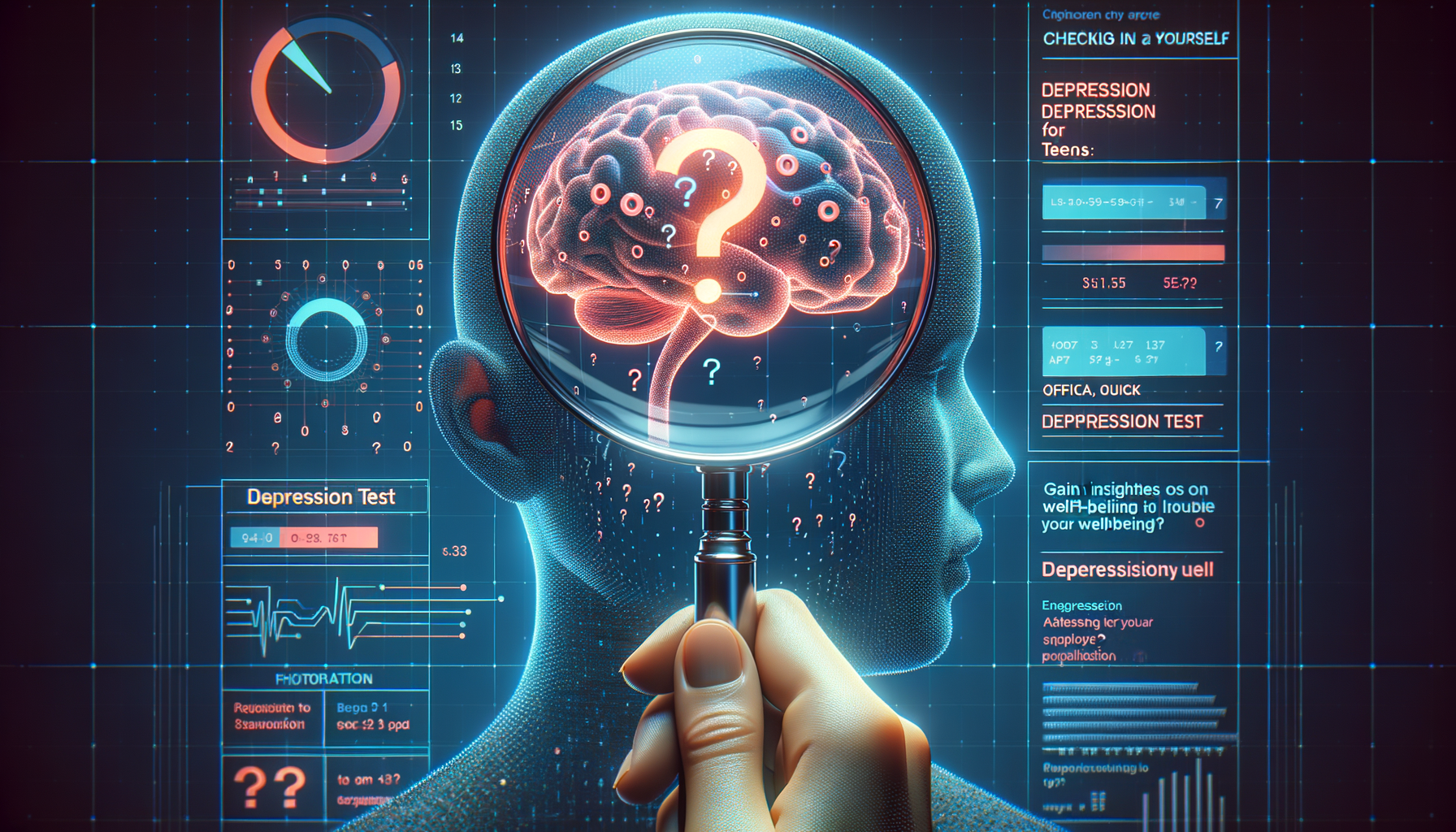Understanding Depression Tests for Teens
Depression is a significant mental health concern, particularly among teenagers, who often face unique challenges as they navigate the transition from childhood to adulthood. Recognizing the symptoms early can lead to timely intervention, which is where depression tests for teens come into play. These tests are designed to identify signs of depression by evaluating various emotional and behavioral patterns. While they are not diagnostic tools, they serve as a preliminary step in understanding one’s mental health status.
Teen depression tests typically include questions that assess mood, sleep patterns, energy levels, and interest in daily activities. It’s essential for these tests to be administered in a supportive environment where teens feel comfortable expressing their feelings. Key indicators of depression in teens may include persistent sadness, withdrawal from social activities, changes in appetite, and difficulty concentrating.
Parents and guardians play a crucial role in this process. By being attentive to changes in behavior and mood, they can encourage teens to take these tests and seek professional help if needed. Early detection through depression tests can lead to better management and improved outcomes for teens struggling with depression.
The Role of an Official Depression Test
An official depression test is a standardized assessment tool used by healthcare professionals to evaluate the presence and severity of depression. These tests are often based on established clinical guidelines and are used in various settings, including hospitals, clinics, and mental health centers. The goal of an official depression test is to provide a comprehensive evaluation that can guide treatment decisions.
One of the most widely recognized official depression tests is the Patient Health Questionnaire (PHQ-9), which consists of nine questions that reflect the diagnostic criteria for depression. This test helps clinicians understand the patient’s symptoms and their impact on daily functioning. The results can indicate whether a patient might benefit from further evaluation or intervention.
Official depression tests are valuable because they offer a structured approach to assessing mental health. They are often used as part of a broader diagnostic process that includes interviews and other assessments. By providing a reliable measure of depression, these tests help ensure that individuals receive appropriate care and support.
Exploring Quick Depression Tests
In today’s fast-paced world, quick depression tests offer a convenient way to gain insights into one’s mental health. These tests are typically brief and can be completed in a matter of minutes, making them accessible for individuals who may be hesitant to seek professional help immediately. While they are not substitutes for comprehensive assessments, quick depression tests can serve as an initial step in recognizing potential mental health issues.
Quick depression tests often include a series of questions that focus on mood, energy levels, and interest in daily activities. They are designed to be user-friendly and can be found online or in mobile apps. These tests can be a valuable resource for individuals seeking to understand their emotional well-being without the pressure of a clinical setting.
It’s important to note that while quick depression tests can provide useful insights, they should not be used as a stand-alone diagnostic tool. If the results indicate potential depression, it’s advisable to seek further evaluation from a mental health professional. Quick depression tests can be a helpful starting point, but professional guidance is essential for a comprehensive understanding of one’s mental health.
Comparing Different Types of Depression Tests
When exploring depression tests, it’s important to understand the differences between various types and their intended purposes. Depression tests for teens, official depression tests, and quick depression tests each serve unique roles in assessing mental health.
Depression tests for teens are tailored to address the specific challenges faced by adolescents. They focus on common symptoms experienced during this developmental stage, such as changes in mood, behavior, and social interactions. These tests are often used in school settings or by pediatricians to identify early signs of depression.
Official depression tests, on the other hand, are comprehensive tools used by healthcare professionals to diagnose and assess the severity of depression. They are based on clinical guidelines and provide a structured approach to evaluating mental health. These tests are essential for developing treatment plans and monitoring progress.
Quick depression tests offer a more accessible option for individuals seeking immediate insights into their mental health. While they are not as detailed as official tests, they can serve as a valuable first step in recognizing potential issues. It’s important to follow up with a professional evaluation if these tests indicate possible depression.
Conclusion: Taking the First Step Towards Mental Well-being
Understanding and addressing depression is crucial for maintaining mental well-being. Whether through depression tests for teens, official depression tests, or quick depression tests, these tools offer valuable insights into one’s emotional health. While they are not diagnostic on their own, they provide an important starting point for recognizing potential issues and seeking further evaluation.
For teens, early detection and intervention can significantly impact their development and quality of life. Parents, educators, and healthcare professionals play vital roles in supporting teens through this process. Official depression tests are essential for providing a comprehensive evaluation that guides treatment decisions, ensuring that individuals receive appropriate care.
Quick depression tests offer a convenient way to check in with oneself and gain initial insights. However, it’s important to remember that professional guidance is crucial for a complete understanding of mental health. By taking the first step with these tests, individuals can move towards a healthier and more fulfilling life.

Leave a Reply